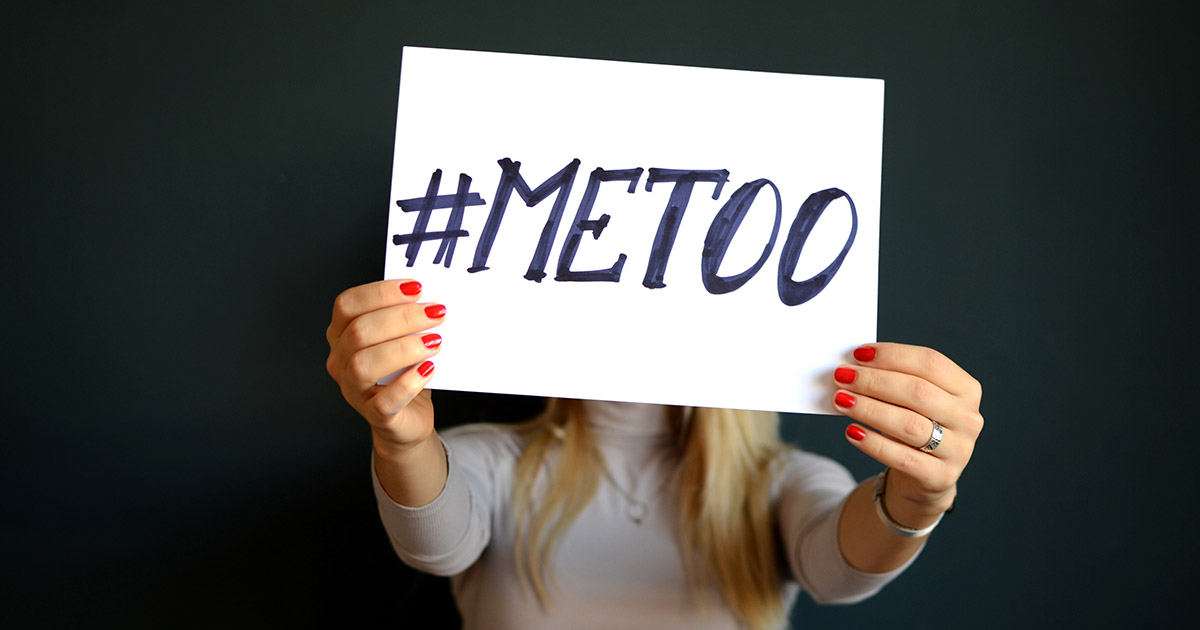LETTERS FROM BERLIN
★ ★ ★ ★
ON BREAKING THE SILENCE WITH #MeToo

By Annie Mark-Westfall
When I posted “Me Too” on Facebook last week, my husband came to the living room, stood in the doorway and asked me in a quiet voice, “Have you ever…?” He didn’t finish the sentence, but I knew what he was asking. The question surprised me. We have been together for 12 years, and are from the same small hometown. Have we really never had that conversation?
As the women in my life discussed #MeToo, our stories ranged from rape, to groping, to catcalling. One friend shared that her graduate school classmate had raped her, several years ago. Now he is an elected official, in a serious relationship with another friend, and attended the Women’s March.
A couple friends quietly, almost guiltily said, “Not me, actually.” However if catcalling and having your butt pinched count, then yes, them too. It has all become so normalized that sometimes women don’t even process that stuff. That is just the paradigm that we live in.
In the United States, our elected officials say things like, “Some girls rape easy.” This heinous 2012 quote is from Roger Rivard, the Republican Member of the Wisconsin State Assembly. It is often included in social media posts condemning the GOP’s platforms on women’s issues. His words were meant to explain that women have consensual sex and then claim rape later, just to get the man in trouble. Turns out, studies have shown that at least 90% of rape accusations are true.
Last week’s #MeToo campaign was widely attributed to a tweet by the actress Alyssa Milano. Actually, Me Too originated a decade ago, thanks to Tarana Burke, a black woman. This “detail” is important for the topic of intersectional feminism. When I discovered this, I read more and more articles online about the ways in which contemporary feminism often alienates or ignores the voices of women of color. This is an extremely important topic; and my job as a white woman is to amplify the voices of women of color, not absorb them.
Between reading these articles and waking up the next morning, #HowIWillDoBetter became the male response to #MeToo. My guy friends and friends’ husbands filled my newsfeed with posts acknowledging what they had seen and heard from the women in their lives. Each of their confessions, apologies, and self-flagellations received dozens and hundreds of Likes—the currency of social media. Each “Me Too” I had seen the previous day had, at most, tens of Likes. There were also several articles celebrating the #HowIWillDoBetter response.
As the primary problem, men must be the primary solution. To do that, men must absolutely consider how they need to change and do better. We must have more of these conversations. While acknowledging that, I cannot help but feel some resentment that this became about men. I resent that men—some of the men trying hardest to do the right thing—stole the spotlight with their own stories.
As a woman in my early 30s, many of my friends now have children. As such, so many of these #HowIWillDoBetter posts invoked daughters. It is of course natural for a man to look at his daughter and suddenly understand how terrifying the sexual assault statistics are…or is it? I appreciated Hunter Harris’ piece, “Stop Mentioning Your Daughters When You Denounce Harvey Weinstein.” Why does it have to be a female’s relation to a man (as a daughter, a mother, a sister) that earns us respect, rather than just our existence as a fellow human being?
In the U.S., I feel like a walking cliché of the “woman alone late at night,” pre-emptively blaming myself even for potential assaults. The U.S. has three times more incidents of sexual assault each year than Germany. Before I looked up this statistic, I knew it intuitively. I feel safe on the streets here at any hour.
Germany somehow avoids the rampant hypersexualization of women that is so pervasive in the U.S. In German advertisements, I see models of various ages, sizes, and attractiveness; fewer women in revealing clothing, selling something completely irrelevant. The stock photos in my German textbooks feature middle-aged women with a size 16 waist, rather than thin, smiling young women eating salads.
And of course, Germany’s leader is a woman. A woman who has used dressing “frumpy” as a political tool. The U.S. president is an admitted pussy grabber.
A friend told me, “With all that is going on in the world, I just do not care what Harvey Weinstein did to Gwyneth Paltrow, or what all these millionaires do or don’t do to each other.” And yes to that. Of course, though, the #MeToo campaign is precisely to demonstrate that it is not just about celebrities and millionaires.
At least 12 million women participated in the #MeToo campaign on Facebook. Many women chose not to, for several reasons. Assault victims often feel shame or fear. One friend resents being “rolled out as victims all the time.” Several friends voiced skepticism about the social media platform.
For me, something feels different this time. While perhaps not perfectly, men are responding. Creeps are being called out, and removed from their positions.
As more and more women feel free to speak their truths, we must believe, amplify, and support them. May this be our new normal—not for our daughters, mothers, or sisters, but simply for us.

Annie Mark-Westfall graduated from Kenyon College in Ohio. As a former Fulbright grantee and Robert Bosch Foundation fellow, she views herself as a cultural ambassador. Her day job is with an international conservation organization.

DEAR READER
At The Wild Word we are proud to present some of the best online writing around, as well as being a platform for new and emerging writers and artists.
As a non-profit, the entire site is a labour of love.
If you have read the work in The Wild Word and like what we do, please put something in our tip jar to keep this amazing platform alive.
THANK YOU FOR YOUR SUPPORT!
























I want to contribute, but the donate page is in German. Can you translate to English as well?